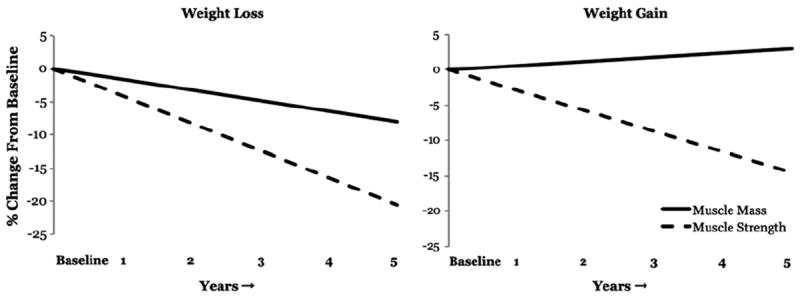Fig. 2.

The age-related loss of muscle strength is weakly associated with the loss of muscle mass. These figures were adapted from published data obtained from the Health ABC Study to examine the relation between changes in knee extensor strength and quadriceps femoris cross-sectional area muscle (measured by computed tomography) in a 5-y longitudinal study of older adults [15]. These data represent the annualized rate of loss over a 5-y period in older adults who lost body weight (left; n = 309 men) and gained body weight (right; n = 143 men). Note that 1) muscle strength is lost at a substantially faster rate than muscle mass and 2) gaining muscle mass does not prevent the aging-related loss of muscle strength (right). Adapted from data presented by Delmonico et al. [15], with the created figure being approved by the corresponding author (M. J. Delmonico).
